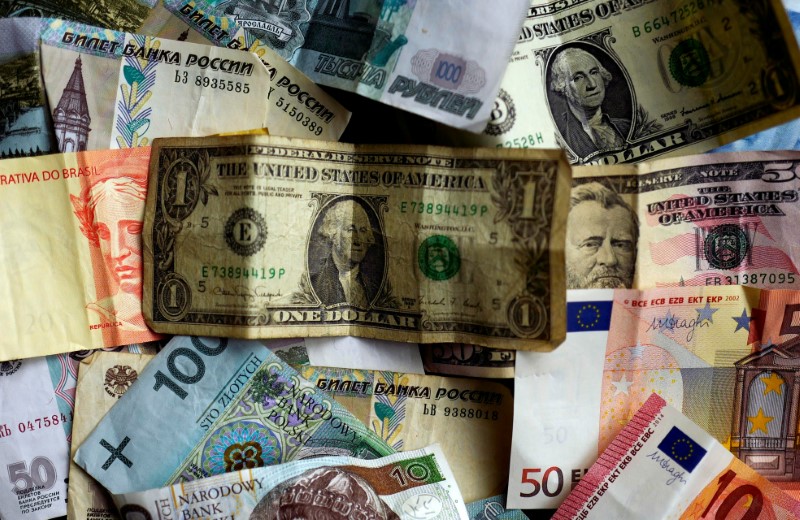By Sam Forgione
NEW YORK (Reuters) - The U.S. dollar turned positive against a basket of major rivals on Tuesday after touching its lowest level in more than 2-1/2 years as traders brushed aside concerns surrounding a North Korean missile launch over Japan.
The dollar, which had touched its lowest level against the yen in 4-1/2 months earlier on widespread risk aversion following North Korea's launch of a ballistic missile over northern Japan's Hokkaido island into the sea, jumped more than half a percent against the Japanese currency in afternoon U.S. trading to a 12-day high of 109.89 yen
The euro was last roughly flat against the greenback at $1.1980
"All that Korea news you can still classify in the ‘known unknown' category," said Shahab Jalinoos, global head of FX strategy at Credit Suisse (SIX:CSGN) in New York. "None of it is anything the market has never seen before, so the market's capacity to bounce back from that was really high."
He also said the U.S. stock market's recovery had calmed some of the fears that had weighed on the dollar, and that investors were beginning to turn their focus to Friday's U.S. non-farm payrolls data for August.
The dollar index (DXY), which measures the greenback against a basket of six major currencies, was last up 0.1 percent at 92.336 after touching its lowest since January 2015 of 91.621 earlier.
The missile launch had in part prompted short-term speculators such as macro hedge funds to buy back yen in an unwinding of so-called carry trades, Sireen Harajli, foreign exchange strategist at Mizuho in New York, said earlier regarding the dollar's weakness.
The dollar was last flat against the Swiss franc, another safe-haven currency, at 0.9549 franc
"Things have kind of settled down with Korea," said Win Thin, global head of emerging market currency strategy at Brown Brothers Harriman in New York. "In the past, it has always been you have knee-jerk selling...but it eventually wears off."

The euro was still being supported in part by comments from European Central Bank President Mario Draghi last Friday, said Jalinoos of Credit Suisse. Draghi did not mention the euro's strength, which was seen as a tacit green signal to euro bulls.